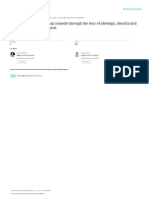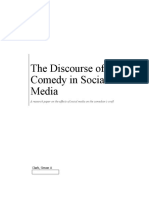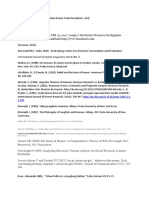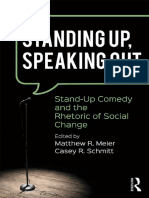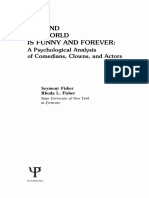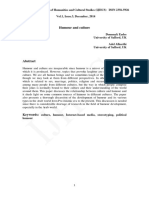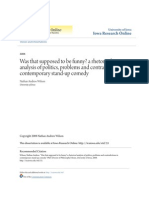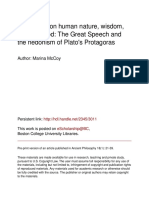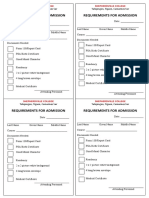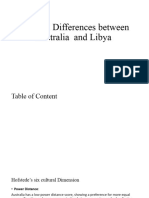0% found this document useful (0 votes)
199 views14 pagesInside Indian Comedy Writing
The document discusses what goes into writing jokes for stand-up comedy. It touches on several points:
1) There has been a shift over time in what topics are acceptable to joke about, with decreasing tolerance for jokes that may offend certain groups.
2) Younger comedians are sometimes stereotyped as being more controversial or wanting attention, but their humor may just be misunderstood dark humor.
3) Context is extremely important for comedy, and a joke could be interpreted differently without the full context surrounding it.
Uploaded by
Divya KoppikarCopyright
© © All Rights Reserved
We take content rights seriously. If you suspect this is your content, claim it here.
Available Formats
Download as PDF, TXT or read online on Scribd
0% found this document useful (0 votes)
199 views14 pagesInside Indian Comedy Writing
The document discusses what goes into writing jokes for stand-up comedy. It touches on several points:
1) There has been a shift over time in what topics are acceptable to joke about, with decreasing tolerance for jokes that may offend certain groups.
2) Younger comedians are sometimes stereotyped as being more controversial or wanting attention, but their humor may just be misunderstood dark humor.
3) Context is extremely important for comedy, and a joke could be interpreted differently without the full context surrounding it.
Uploaded by
Divya KoppikarCopyright
© © All Rights Reserved
We take content rights seriously. If you suspect this is your content, claim it here.
Available Formats
Download as PDF, TXT or read online on Scribd
/ 14





